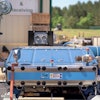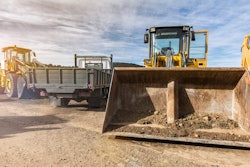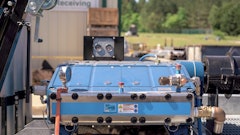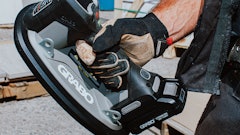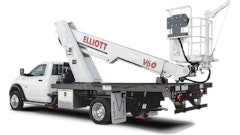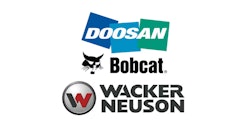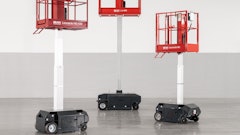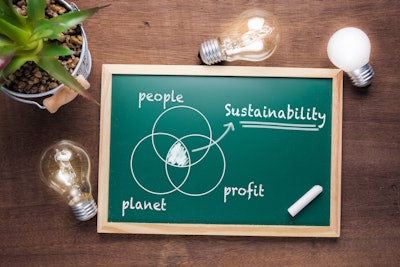
Construction equipment rental is a big business. The U.S. rental market is worth $48.5 billion and, for the most part, has steadily grown over the past decade. While this growth is beneficial, it also means companies may face more competition.
Because of that, rental businesses need to do more today to stand out from their competitors. One of the most intriguing options is to embrace sustainability as people grow increasingly concerned about the environment. At the same time, high upfront costs and a seemingly niche audience may make some companies hesitant.
Is sustainability a profitable business model for rental companies? Here’s a closer look.
Rising Demand
The first thing to note about sustainability as a business tool is its growing demand. As issues related to climate change have grown increasingly prevalent, more companies are looking to go green. Sustainable investments now total $35.3 trillion globally, accounting for more than one-third of all assets in five of the world’s biggest markets.
Heavy industries like construction will see particular growth in sustainability demand over the next few years. Businesses are looking to construct greener buildings, and eco-friendly equipment will help construction teams meet this goal. Rising environmental regulations and government incentives may also push some companies to embrace sustainability.
The recent Bipartisan Infrastructure Bill will invest billions of dollars in sustainable infrastructure. This will increase demand for green construction, in turn pushing demand for eco-friendly equipment. Rental businesses that offer that machinery could see significant growth.
A Relatively Untapped Market
The sustainable equipment rental market also lacks the intense competition of the general industry. While companies like Ford have invested $11 billion in electric vehicles (EVs), similar investments are relatively absent from construction equipment (although there has been an uptick in electric and lithium-ion battery powered machines). That presents an enticing opportunity for rental businesses.
While there is increasing pressure for construction companies to go green, the industry has a long way to go. The building and construction sector accounts for 39% of energy and process-related emissions, a number that has only increased over the years. A substantial portion of these emissions come from heavy machinery, giving sustainable rental companies an open market.
By focusing on sustainability, rental companies could avoid tight competition they may encounter elsewhere in the sector. That could ensure more business, bringing in more profit.
Lower Maintenance Costs
One less obvious factor to consider is the ongoing cost of running a rental business. Successful companies must keep equipment in top condition for their clients, which can quickly grow expensive. Sustainability could lower these expenses, as EVs have fewer maintenance concerns. In fact, electric motors have far fewer moving parts than diesel engines. There are no cylinders, gears, or similar machinery, meaning reduced vibrations, fewer points where something could break, and less need for lubrication.
It’s important to note that the parts that do need maintenance on an EV are typically more expensive. Still, the lower repair frequency makes up for that cost. Average upkeep costs on an EV are around 6.1 cents per mile, whereas an internal combustion engine costs 10.1 cents per mile.
Higher Revenue
With as many benefits as they bring, EVs are typically more expensive than their diesel-powered counterparts. While that can be a drawback, it also presents a unique opportunity for rental companies. Higher prices could let these businesses charge more to rent them, bringing in more revenue.
While lower rates may attract customers, the push towards sustainability may encourage them to spend more than usual. A recent study shows that 42% of people in the U.S. are willing to pay a premium for sustainable goods or services. A similar sentiment could apply in commercial markets, letting rental companies successfully charge more for eco-friendly equipment.
This higher revenue could translate into greater profits, too, despite EVs’ higher upfront costs. The lower maintenance needs may make up for the initial price eventually, leading to higher profits in the long run.
Growing Options
A rising number of equipment manufacturers are offering eco-friendly versions of their products to capitalize on the push to lower emissions. As this trend continues, rental businesses will have more options for their clients, helping meet more needs. This phenomenon is still relatively new, but it’s shown impressive growth in a short period. Take electric pickup trucks, for example. While the Tesla Cybertruck may be the most noteworthy example, Ford and GMC are also working on electric models, as are several lesser-known startups.
New industry players and large, established brands are pursuing an electric future. As a result, rental businesses won’t have to worry about a limited range of offerings for long. Soon, they can offer various eco-friendly models to suit any client’s needs.
Potential Drawbacks
There are still some drawbacks to pursuing sustainability as a business model for rental companies. While many options will be available before long, that’s not the case right now. For the first few years of running a green rental business, companies may not be able to serve every market.
This issue will work itself out with time. In the meantime, rental businesses can start to offer a few electric models before transitioning entirely to eco-friendly equipment.
Another potential obstacle is the construction industry’s general hesitance to adopt new technology. While EVs present many benefits over diesel alternatives, including instant torque delivery and higher efficiency, construction firms may want to stick to what’s familiar. Rental companies may be able to counteract this with effective marketing, stressing the benefits and citing real-world numbers.
Finally, eco-friendly equipment will come with higher upfront costs. As mentioned earlier, though, charging higher rates and lower maintenance requirements could make up for this.
A Promising Business Model
Sustainability appears to be a promising model for equipment rental businesses. Companies may not be able to transition entirely to these machines immediately, but starting to offer them now could place them ahead as the trend picks up steam.
It will take a while for the construction industry to embrace sustainability fully, but that shift is already beginning. Those that capitalize on it early could see impressive long-term growth.

